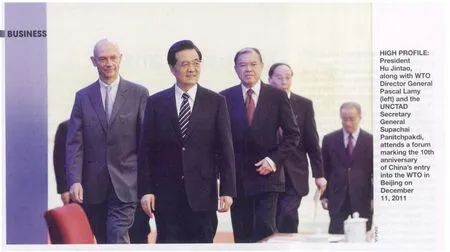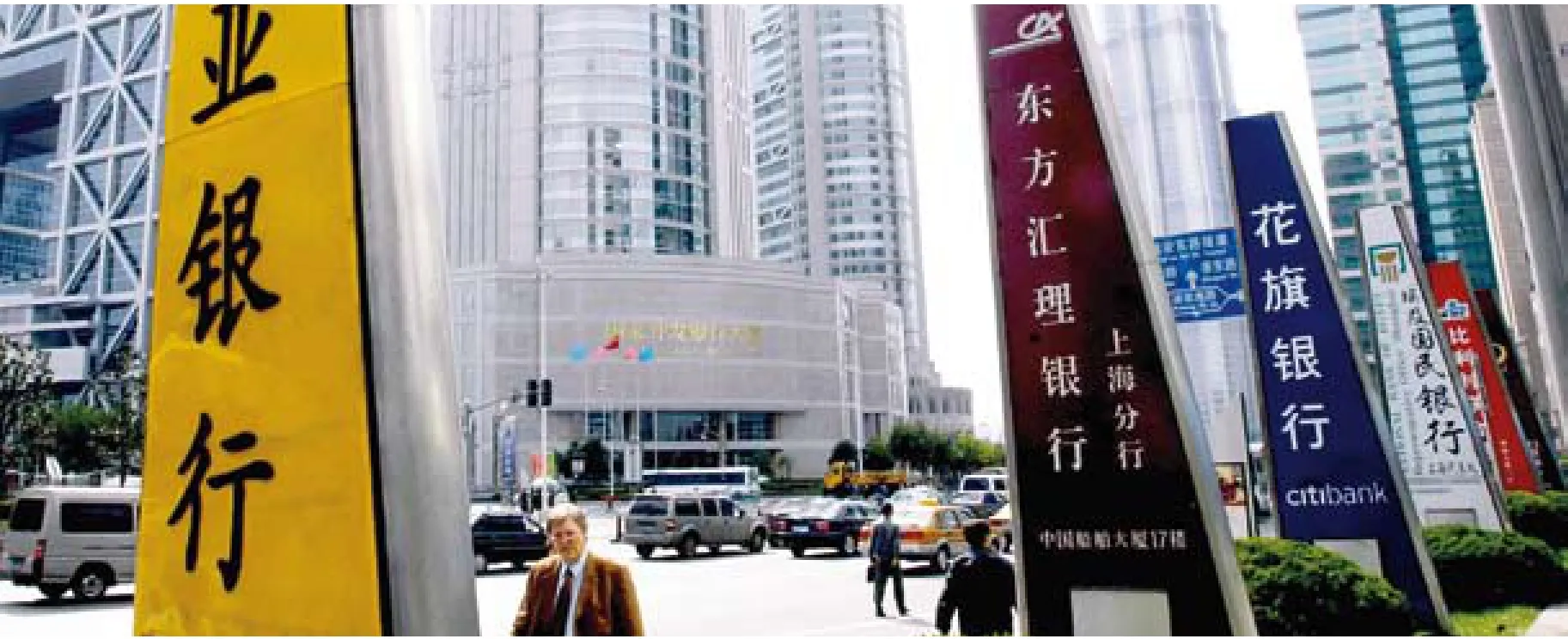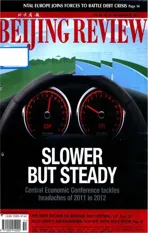Gates Wide Open
2011-10-14ByLIUYUNYUN
By LIU YUNYUN
Gates Wide Open
By LIU YUNYUN
China vows to further open up its market to spur international and domestic economic development

China’s entry into the WTO 10 years ago was a major step in the country’s reform and opening up. It indicated the “beginning of a new historic stage” in the country’s interaction with the rest of the world, said Chinese President Hu Jintao, at a high-level forum marking the 10th anniversary of China’s accession to the WTO held in December 11.
China became the WTO’s 143rd member on December 11, 2001. During the past decade, the country has become the world’s second largest economy, the largest commodity exporter, and the second largest commodity importer. Looking to the future, China’s imports are estimated to exceed $8 trillion in the next fve years, which will offer tremendous opportunities to countries around the world.
Although a relatively new WTO member, China is now regarded as bellwether of the multi-level trade system of the world.
“It must fnd a way to adjust itself to this change,” said Zhang Hanlin, Dean of China Institute for WTO Studies of the University of International Business and Economics.
“It is certainly necessary to continue to further open the Chinese market,” Huo Jianguo, President of Chinese Academy of International Trade and Economic Cooperation, said in an article on theEconomic Information Daily.
But “we must take a moderate approach to opening up and make carefully made decisions on how fast and how extensively we can do this,” he said.
China’s development still contains unbalanced, uncoordinated and unsustainable strains, and the country is seeking to transform its economic development pattern and adjust the economic structure.
The service industry, a contributor for national GDP of other countries, has not found its place in China. It only accounts for 43 percent of the Chinese economy, lower than the average level of 50 percent in developing countries and 80-90 percent in developed countries.
Commercial services, in particular, seem to be stuck. The aviation and energy sectors are opened to foreign capitals but are shunned away from domestic private enterprises.
China needs to explore the potential to develop both ends of the service industry, from logistics, wholesale and retail to innovation, design and creativity.
Liu Guangxi, a veteran WTO law researcher at the Chinese Society of Law said opening up the financial sector is key, and the main links will be opening up of capital markets such as the insurance and securities markets.
Zhang said that China should encourage foreign capital to participate in the agricultural industry. The government can give support to agriculture. In the past decade, the east costal region has been opened to overseas investors while the central and the western regions as well as the older northeast industrial base are still trying to catch up.
President Hu also urged the recognition of China’s full-market economy status as soon as possible, in addition to relaxed restrictions on hi-tech commodity exports to China.
The common goal of the WTO members is to promote opening up, globalization and economic trade cooperation. However, due to the different level of development and different national conditions, developed countries must take into consideration the interests of developing countries, said Huo.
All players in the market shall abide by WTO rules and regulations instead of practicing hegemony. Developed economies should increase their hi-tech exports to China, he said.
The Doha round negotiation has been progressing despite numerous setbacks. China is a developing country and it should only shoulder appropriate responsibilities.
“I frmly believe that there is huge potential for the Chinese economy. This new vigor needs to be spurred by deepening marketoriented reform, which can build a solid foundation for the next round of economic boom,” said Huo.

XINHUA
